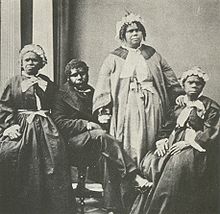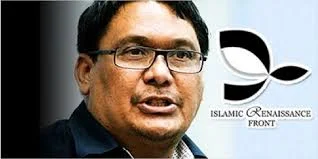THE Malay elite (including myself) have long viewed London as their second home. We’ve tended to see Britain through rose-tinted lenses – following in the footsteps of the nation’s founding fathers, Tunku Abdul Rahman and Tun Abdul Razak.
 |
| Karim Raslan |
The pound sterling’s current depreciation has enhanced the love affair, as we’re now enjoying more bang for our buck at Selfridges and Harrods. For us, England is unchanging and unchanged: it’s what we want it to be because we’re not too interested in what it has become or is becoming.In reality, contemporary Britain is a society in crisis, slowly crumbling under the weight of mismanagement, its faltering economy and its misplaced post-Imperial ambitions – witness Tony Blair’s unconvincing performance at the latest hearing of the Chilcot Inquiry on Iraq. The facts are disturbing enough: 2010 inflation figures are mounting with Retail Prices Index at 4.8% and Consumer Price Index at 3.7%. Meanwhile, VAT (or sales tax) has been raised to 20% from this year.
As I write, unemployment stands at a staggering 2.5 million, of which 951,000 are accounted for by people under the age of 25 – that’s roughly one in five of the country’s younger generation. Moreover, these figures are set to worsen as the full impact of the coalition government’s austerity plans take root. With an economy wedded to consumption, an anaemic manufacturing sector and crippled finances, Britain’s once lavishly funded welfare state is no longer sustainable. Furthermore, despite the riots that roiled London last month, free tertiary education will soon be history – all of which will only worsen the country’s existing gap between rich and poor. It’s arguable that Britain’s class wars have been re-ignited by the collapse of the once booming property market.
With Central London prices insulated by foreigner-led demand in exclusive enclaves such as Knightsbridge, Chelsea, St. Johns Wood, the differences between the ordinary man-on-the-street and the wealthy are heightened. Indeed, last week’s launch of One Hyde Park – the luxurious 86 apartments developed by the Candy Brothers in Knightsbridge underlines Britain’s ironic situation: luxuriousness amid straightened circumstances.
London is fast becoming a hub for the global elite – Russian oligarchs, Arab oil sheikhs, Chinese and Indian billionaires – as an increasingly impoverished English population make do in the suburbs and economically blighted North, Northwest, Scotland and Wales, indeed almost everywhere except Central London.
All is not gloom, however.
Preparations for the 2012 Olympics will provide an inevitable boost to the national spirit as will the highly anticipated Prince William/Kate Middleton nuptials. Sadly, sports events and royal weddings don’t feed people or keep them in their homes as house repossession rates continue to spiral. At the same time, household disposable income (according to the retail analysts Verdict) is set to fall by up to 9.1% between 2010 and 2015. This gloomy prediction is mirrored by the situation on Britain’s high streets where the vacancy rate will surpass 15% this year, according to the Local Data Company. Smaller towns such as Margate and Rotherham are experiencing a vacancy rate equivalent to one shuttered shop for every three that are utilised.
Is there a fundamental shift afoot? Could it be that Napoleon’s nation of shopkeepers is no more? With the added impact of the Internet hastening the process, British high streets are changing forever as pawn brokers and betting shops replace banks, property agents and retail outlets. Even the corner pub is fast disappearing.
In the face of such challenging contemporary problems, history has become a comforting refuge. The Empire and the Second World War are lode stars amid the all-pervasive melancholia.
Indeed, the current box office favourite, The King’s Speech, a movie set in 1939 on the eve of war exemplifies the country’s backward-looking mood. Wallowing in past glories has permitted the British a momentary respite. They can forget about their present frailties and, indeed, mediocrity. Sadly, it’s also distracted them from the urgency to act – to confront reality and institute real, deep-rooted reforms.
So, as the Malay elite plan for their holidays in London, let’s hope they can see Britain’s weaknesses – its frailties in the face of global socio-economic changes. The challenges facing Malaysia are severe, if not so deep-rooted as Britain’s. Certainly, if we wish to grow and develop, we will need to avoid the pitfalls of the British.
Britain’s successive leaders have neglected to address their country’s lagging economy and are now paying the price as they scramble to rebuild their industrial capabilities.
Similarly, Malaysian leaders have to address our economic malaise. How do we adapt to a world where we are a mere minnow? At the same time, we have to end our version of the welfare state – the NEP. The combination of policies, while beneficial and laudable at first, has now become a real threat to our economic livelihood and our future. If we choose not to tackle the NEP, future generations will suffer for our present-day timidity.
Of course, all this requires real guts. Will we learn from Britain’s or will we be doomed to follow our former colonial masters into a slow decline?













 On either side of this sentence, enjoy the view of the warm, pristine white fine sands of the 'Friendly Beach'.
On either side of this sentence, enjoy the view of the warm, pristine white fine sands of the 'Friendly Beach'. 














